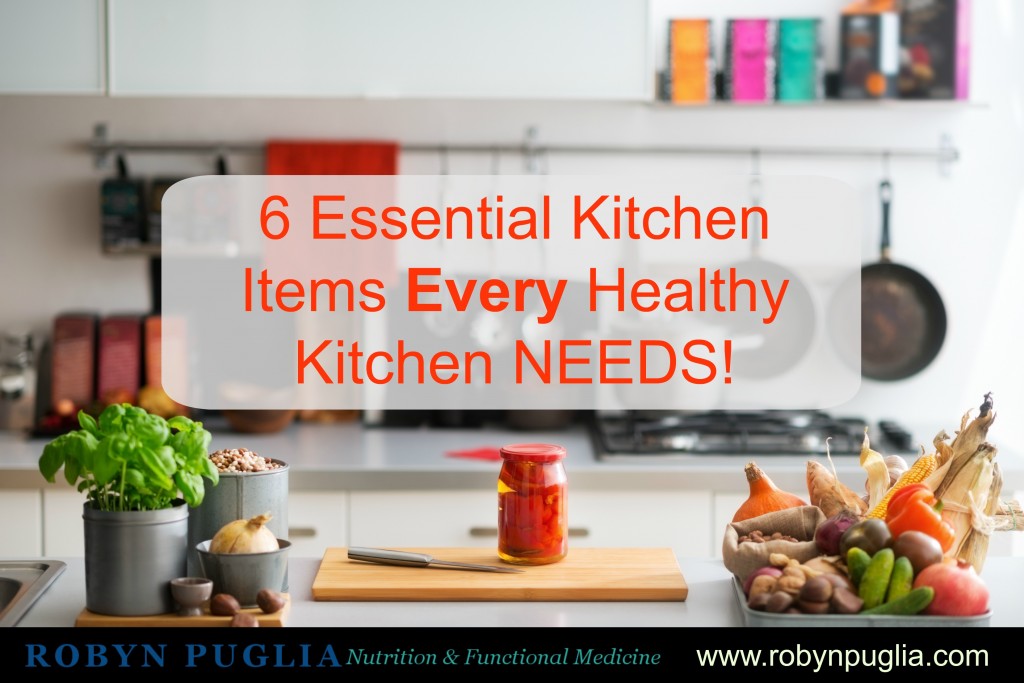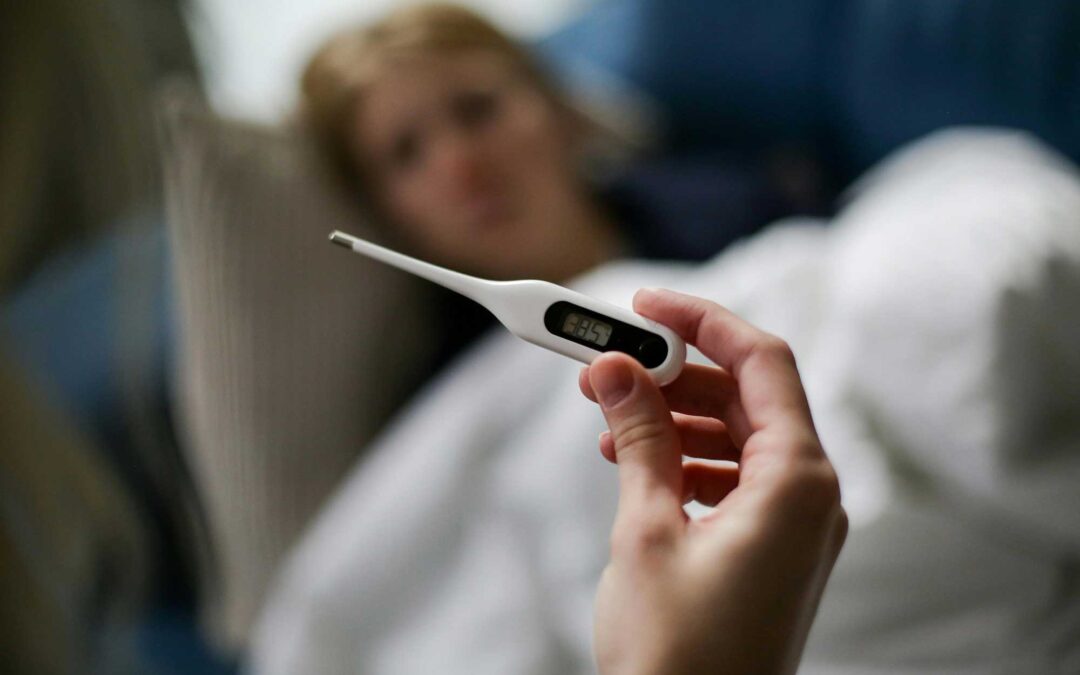Kitchen Equipment
What equipment would you expect to find in a Healthy Kitchen?
I had to teach myself how to cook several times. First was when I moved out of home at 17. I ate a surprising amount of veggies for someone young in hindsight, but I also thought cooking from a packet was normal, so there was a lot of processed food in there too.
I had to completely re-learn when I was diagnosed with coeliac disease and as I trained to be a nutritionist and then a functional medicine practitioner my kitchen has been the site of an on-going evolution of skills.
Part of this evolution has included a gradual acquiring of gadgets and equipment. In my early days I believed that if only I had just the right equipment, I would be a great cook.
Further down the line, now that I am actually a much better cook (practice and time makes perfect) I have discovered that simple is often more than enough.
Yes, I do have a very high powered blender and a bunch of whisks and pans and all sorts of things, but the pieces of equipment that make my life as a healthy cook the easiest are actually pretty simple and surprisingly inexpensive.
These are the 6 pieces that are in constant use in my kitchen, that make my life easy and that I think every healthy kitchen should definitely have, plus one ‘bonus’ piece.
Knife Sharpener
Healthy cooking requires a LOT of veggie chopping! Now, most chefs will tell you that your knife is the most important thing, and while (see bonus item) I do agree with that to a certain extent, you will be able to function just fine with a cheaper knife if you take care of it and sharpen it on a regular basis. I have lots of knives in my kitchen ranging from cheap and cheerful to eye-wateringly expensive (I asked for them for Christmas and birthday presents for a long time), and as long as they are sharp I have come to the conclusion that the cheap ones work great. So if you are just getting started, spend money on a sharpener and work with the knives you already have, and if you have good knives then take care of them and they will last you a lifetime of happy chopping.
Ginger Grater
What’s that, you have never heard of a ginger grater? This small and inexpensive piece is one of my most used kitchen gadgets. Ginger has wonderful anti-inflammatory properties and livens up any dish you put it in. It’s also great for the autoimmune protocol when so many usual spices are restricted. You just rub the ginger over the surface and within a couple of seconds you have juice and pulp and you can discard the woody filaments. For less than £10, considering the frequency of use over the last 5 years, this little number has earned its keep hundreds of times over. It can also be used for garlic
NutriBullet
Confession time. We have 4 blenders. Yes, that’s right 2 people have 4 blenders between us and I am responsible for 3 of them. And you know which one we use 2-3 times or more per day, every day? It’s the Nutri-bullet. It’s so easy to use, high-powered and fast, plus really easy to clean. I find myself reaching for it all. the. time. I make flour, make nut butter, grind spices, chop onions to prevent tears and save time when batch cooking (ok, it makes onion puree, NOT slices, but my hubby prefers that anyway), make smoothies, make chia pudding, nut milk and my Sunrise and Sunset Teas. My only hang-up about this blender is a big one, and that’s that it’s plastic. I wish they had a glass container or that I could swap in a mason jar. Aside from that, it’s so handy and makes my kitchen time that much faster and more efficient.
Spiraliser
You have probably heard about this fab kitchen find as it’s gained a lot of popularity among the healthy eating world recently. Well I am no exception. I LOVE my spiraliser. I use it to make sweet potato noodles and courgetti/zoodles for paleo pad thai or serving under meatballs, chilli, bolognaise sauce or in soups. I even use it for salads in the summer. There are lots of options, but I just love that it makes delicious, nutrient dense ‘noodles’ that are slurpy, satisifying, comforting and healthy. And it’s quick and easy to use and clean. I have this one, and I broke two before this one that weren’t as well made because I do use it very frequently. So I do recommend the one I have because of that. I don’t make any commission if you buy one, it’s just my experience.
Immersion Blender
I was given my immersion blender (actually I am just now realising that I guess this means I have 5 blenders not 4) by a girlfriend when she moved countries. Because I had so many blenders plus a hand-mixer I wouldn’t have bought myself one, but now I would never be without one again. I love it because I can use it directly in the pan I am working in so it saves a lot of food-transfer hassle and cleaning up. I can whizz up soups right there on the stove, puree veggies in the pan. I use it for making autoimmune egg replacements and maybe one of the best things I do with it, even if it’s one of the less frequent, is that I travel with it to make smoothies while I’m on the road. I just take a large glass jar, some pre-mixed smoothie packs (that I make myself) with protein powder, maca, vitamin C powder and whatever else I am taking at that time, then when I get to my destination I can add coconut milk or almond milk and a little fruit or berries, or in a real pinch I can just add water and I have a great breakfast or snack that will keep me on my program, keep me feeling full and healthy, all thanks to one of my kitchen gadgets. If I had to choose just one blender out of all of them, it would definitely be this one!!
Glass Storage, Cookware and Jars
This was a huge shift for me, but a very important one. For many years I had a beautiful collection of matching Tupperware and Lock and Lock plastic containers that I kept my dry-goods stored in, and leftovers in the fridge. I loved how matching and organised my kitchen cupboards looked. But as I learned more about the disturbing effects of plastics on the body and that they leach into food and drinks via the containers we store them in, it was a no-brainer to move towards glass storage. Especially once I was pregnant and breastfeeding. It makes me so happy to be reducing the load that I pass on to my daughter because those endocrine disrupting chemicals have a huge negative effect on developing bodies and brains (more on that another time). I have three main types of glass storage and cookware in my kitchen.
The first is Pyrex, which I love. I use their casserole dishes for daily cooking. I use their glass freezer-to-oven sets for batch cooking, storage in the fridge and freezer and reheating. They have a plastic lid, but I pop a piece of baking parchment between the food and the lid to stop them from touching. I have these, and these. (These are not affiliate links, just genuinely what I use).
The second is Kilner and Mason jars. These jars are just brilliant for storing dry-goods in the cupboard, for storing sauces, soups and liquid in the fridge or freezer and for use as drinking containers for larger quantities than the average drinking glass and I use them for fermenting veggies as well. I buy mine from Amazon or HomeBase and I try and pick them up when I am in the USA as well as they have wide-mouth ones that we don’t have here in the UK..
The last is one that drives my husband crazy, and that is that I take the label off and re-use glass jars that I have bought commercially. They don’t look as pretty in the kitchen but I find these wonderful for so many things! They are often just the right size for something small or odd and obviously they save me a lot of money because I don’t have to purchase more jars when I need something or I am batch cooking something new. I also love saving my glass spice jars. I freeze all sorts of things in them, like grated ginger, a small amount of wine for cooking or I make my own spice mixes in individual portions for things like tacos, chicken nuggets or chilli. My very favourite jars are the 700ml passata jars. I use them to store bone broth in the fridge and freezer and I use them to drink tea out of as I have yet to find a 700ml mug. Especially when I was breastfeeding, I would make up 3 jars of tea in the morning so it was easy to be properly hydrated all day long. I wanted to give some to a pregnant friend of mine because they were so useful when I had a newborn but my husband didn’t think I should give our kitchen trash as a gift! Hahaha.
Bonus Item: Knives
Now I did say that I think having a good knife sharpener is more important, and more economical, than having an expensive knife. But as I mentioned before, you do a lot of chopping in a healthy kitchen and having knives that you love can make your work a lot easier. You can start with 1 all-purpose knife like this one. But in an ideal world I think it would be perfect to have at least 4 knives.
- A veggie knife, for obvious reasons. Like this one.
- A paring knife. For all the small work you do, fruit, crudités, garlic and a hundred other small jobs.
- A larger, all-purpose knife that you can use for meat, carving a roast and more robust work.
- Not as essential as the first three, but if you make bone broth on a regular basis, then I really recommend a cleaver. You can get them from Asian markets or restaurant supply stores and they make hacking through a chicken carcass or through joints a breeze, so you get a wonderful gel on your broth from all the collagen and gelatine, and are quite good for stress release as well!
Do buy the best quality knives you can afford, and do look after them. They are an investment and if taken care of can last up to 3 generations!
So there you have it, my healthy kitchen essentials for anyone from a beginner to a more experienced cook.
How many of these do you already have? Do you have any absolute must-haves that you think I missed.
Did any of these surprise you?
I’d love to hear your input in the comments!!!






